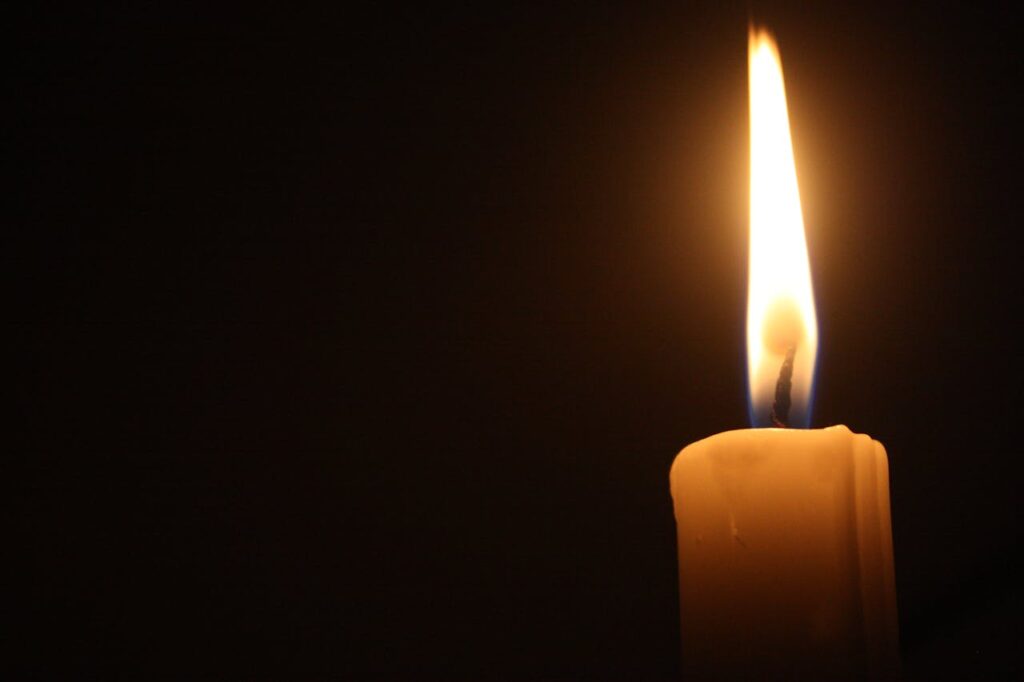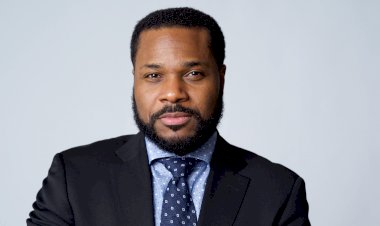From Fani Willis to Letitia James, Trump’s Enemies List Targets Black Women Prosecutors
New York Attorney General Letitia “Tish” James did not fold when a federal grand jury in Virginia indicted her. Days after the Oct. 9 announcement, she took the stage at the United Palace in Manhattan to stump for New York City’s Democratic mayoral candidate, Zohran Mamdani. On the evening of Oct. 13, dressed in a […] The post From Fani Willis to Letitia James, Trump’s Enemies List Targets Black Women Prosecutors appeared first on Capital B News.


New York Attorney General Letitia “Tish” James did not fold when a federal grand jury in Virginia indicted her. Days after the Oct. 9 announcement, she took the stage at the United Palace in Manhattan to stump for New York City’s Democratic mayoral candidate, Zohran Mamdani.
On the evening of Oct. 13, dressed in a sharp black pantsuit and her signature middle-part bob, James stepped confidently onto the auditorium stage to cheers from a crowd of Mamdani supporters — herself among them.
With a courtroom appearance looming on Oct. 24, James channeled her Brooklyn-born grit, and refused to back down.
“Today, I am not fearful, I am fearless, and as my faith teaches me, no weapon formed against me shall prosper,” she said. “I will not bow. I will not break. I will not bend. I will not capitulate. I won’t give up, and I won’t give in.”
In February 2024, James’ office secured a civil fraud judgment against President Donald Trump and the Trump Organization, barring him from doing business in New York for three years. (The multimillion-dollar penalty against Trump was later overturned on appeal).
A little more than a year and a half later, the first Black woman elected as attorney general of New York became the latest target in a continuing campaign by Trump to seek retribution against those who he perceives to have wronged him. Legal experts and civil rights advocates told Capital B they worry this signaled a troubling shift of public servants no longer being a vehicle for justice, but rather a battleground for ideological control.
James joins a growing list of high-profile Black women in public service who are under increased scrutiny by the Trump administration.
In August, Lisa Cook from the Federal Reserve’s Board of Governors came under fire from Trump in a social media post alleging that she committed mortgage fraud. While Cook has not been charged with any crimes, he called for her resignation. In fact, even Cook’s historic nomination was met with fierce Republican resistance.
In September, the Department of Justice subpoenaed records related to Fulton County, Georgia, District Attorney Fani Willis’ travel history around the time of last year’s presidential election.
In August 2023, Willis announced that a grand jury had indicted Trump and 18 other co-defendants on racketeering charges alleging election interference and operating a “criminal enterprise.” But last year, a state appeals court disqualified her from overseeing the case after it was revealed she had a personal relationship with one of the lawyers working with her on the case.
Trump’s campaign of retribution also comes as Black women have become collateral damage in broader efforts to defund or dismantle diversity, equity, and inclusion initiatives. The president’s attack on diversity efforts has derailed the careers of Black women civil servants.
“Every day, Black women across the country … experience microaggressions and macroaggressions on the regular. That is just the fact of being a Black woman in this country,” Janai Nelson, president of the NAACP Legal Defense Fund, told Capital B.
When legal systems are used as political weapons
This isn’t the first time the Trump administration targeted an elected Black woman in law enforcement whose office’s policies were seen as in opposition of his agenda.
This is part of this administration’s history of political prosecutions used to discredit people of color for speaking out or setting up guardrails against Trump’s policies, said Melba Pearson, a Florida-based civil rights and criminal law attorney.
The arrests — and later dismissals of charges following the 2020 Black Lives Matter protests — follows the playbook of The Heritage Foundation’s Project 2025 agenda on how this administration can weaponize the Justice Department to handle future protests, Pearson said.
She noted that while former Baltimore State’s Attorney Marilyn Mosby wasn’t named in the conservative agenda, Mosby’s overturned 2022 mortgage fraud conviction set a precedent for how an elected Black woman prosecutor exercised her discretion during Trump’s first term — and endured the legal consequences.
Mosby rose to national prominence during Trump’s first term, when the officers accused in Freddie Gray’s 2015 death were later acquitted or had their charges dropped. Trump called for her prosecution and later described Baltimore as “rat and rodent infested” after she declined to pursue low-level offenses like loitering.
She also co-wrote a Washington Post op-ed in July 2020 vowing to prosecute federal agents who engaged in “illegal vigilante activities” against 2020 protesters deployed to her city. That same month, the Baltimore Brew published an investigation into Mosby’s finances that launched a federal inquiry that led to her January 2022 indictment on mortgage fraud and perjury charges. She was convicted in November 2023 of perjury for falsely claiming COVID-related financial hardship to access retirement funds and secure favorable mortgage rates on two Florida homes.
The prosecution was described by Mosby as a “federal witch hunt.”
She lost her reelection bid in 2023, and this year, the mortgage fraud conviction was overturned on appeal. But, her felony perjury conviction remains on her records because she wasn’t unemployed in 2020 to justify the early withdrawal, prosecutors said. She was able to keep both condos.
Pearson told Capital B that the cases of Mosby and James highlight a “clear double standard.”
James is accused of cosigning a mortgage application to help her niece purchase a home in Norfolk, Virginia, allegedly misrepresenting it as a primary residence to secure a lower interest rate.
There was a time when it was illegal for women and Black people to obtain a mortgage for a loan to purchase a home. Black people were redlined from purchasing property until 1968 with the passage of the Fair Housing Act. In 1974, the Equal Credit Opportunity Act expanded those rights to women, who would no longer need her husband, or a man, as a cosigner to live on her own.
“She’s literally helping a family member,” Pearson said. “The fact that she’s being charged — this is a political witch hunt.”
It’s also not illegal to own homes in two states, as long as you don’t claim both as your primary residence for federal and state tax purposes, or to earn a lower interest rate on a mortgage. Voter registration and driver license laws prohibit residents to have more than one primary residence. Secondary residents are usually seen as income or vacation property with higher tax implications.
When personal financial records of Trump officials — Labor Secretary Laurie Chavez-DeRemer, Transportation Secretary Sean Duffy, and Environmental Protection Agency Administrator Lee Zeldin — faced scrutiny, all were found to hold multiple primary residence mortgages, according to ProPublica. Similar findings were reported for former Texas Attorney General Ken Paxton.
None were charged in federal court.
Still, concerns of retaliation lingered — for James, and for others like Willis.
Trump has publicly attacked Willis and other prosecutors, calling them “CRIMINALS who will hopefully pay serious consequences for their illegal actions.”
It seems as though a direct investigation into Trump, his business, family, or associates isn’t the only catalyst to becoming a target for investigation by this administration, legal experts said.
Pearson, who also chairs the American Bar Association’s Criminal Justice Section, questioned why economist Cook’s low-profile career drew attention from this administration. The criminal probe into whether she held two primary residences in Georgia and Michigan — allegedly to secure better loan terms — was triggered by a referral from Trump-appointed Bill Pulte, director of the Federal Housing Finance Agency. Pulte’s agency doesn’t typically interact with Cook’s.
“So again, [this] comes under the same narrative,” Pearson said about the administration’s efforts of discrediting Black women, and attacking their livelihood. She said Cook’s case is “just more of the sullying of reputation, knowing that [mortgage fraud allegation] can’t win in a court of law. [Instead], he turns to the court of public opinion.”
Federal layoffs and the ripple effects
Nearly 20% of federal government workers are Black, and 11% are Black women, according to the Office of Personnel Management. More than 100,000 are Black women who have lost their jobs amid the Trump administration’s rollback of diversity, equity, and inclusion initiatives, according to analysis of national labor statistics.
Their work in local civil rights offices tasked them with investigating discrimination. Some were dismissed after being labeled as “DEI hires,” following a broader political backlash tied to the 2023 Supreme Court’s decision restricting race-conscious admissions in higher education.
An investigatory agency without people of color is “going to be devastating,” Gloria J. Browne-Marshall, author of A Protest History of the United States, told Capital B. “This is a targeted attack with the intent to force Black people into a subservient role in this society.”
Whether or not these women are replaced by others, the institutional progress they helped build is at risk of being erased. In times of workplace crisis, having someone working in these agencies, who reflects the community, can offer comfort and understanding often missing from outsiders unfamiliar with local nuances.
“Our diversity is our absolute greatest strength in this country, and to purge that from the federal government is not only discriminatory and unlawful, but it also has a direct impact on the services that our government can provide,” Nelson, the Legal Defense Fund president, said just a week after defending the Voting Rights Act of 1965 before the U.S. Supreme Court. “And it’s hard to imagine that can happen effectively, if you don’t have people who come from your particular experience and background.”
None of what is happening has been surprising to Browne-Marshall, a constitutional law professor at John Jay College. She said many of these rollbacks were previewed during Trump’s first term and formalized in his reelection platforms in 2020 and 2024. Several policies are being implemented through The Heritage Foundation’s Project 2025 agenda, including replacing experts with political appointees at the U.S. Census Bureau and threatening to prosecute private employers if their workplace supports DEI efforts.
“The ramifications are quite significant, both to the individuals themselves, and then, the communities that they serve, and frankly, for all Americans, because it impacts the legitimacy of our government,” Nelson said. “Over 300,000 Black people and Black women have lost their jobs. We should be talking about that a lot more.”
Read More:
- The Thwarted Promise of Black Women Prosecutors
- As Marilyn Mosby Faced Crucial Day In Court, Her Family and Faith Were Front and Center
The post From Fani Willis to Letitia James, Trump’s Enemies List Targets Black Women Prosecutors appeared first on Capital B News.
























